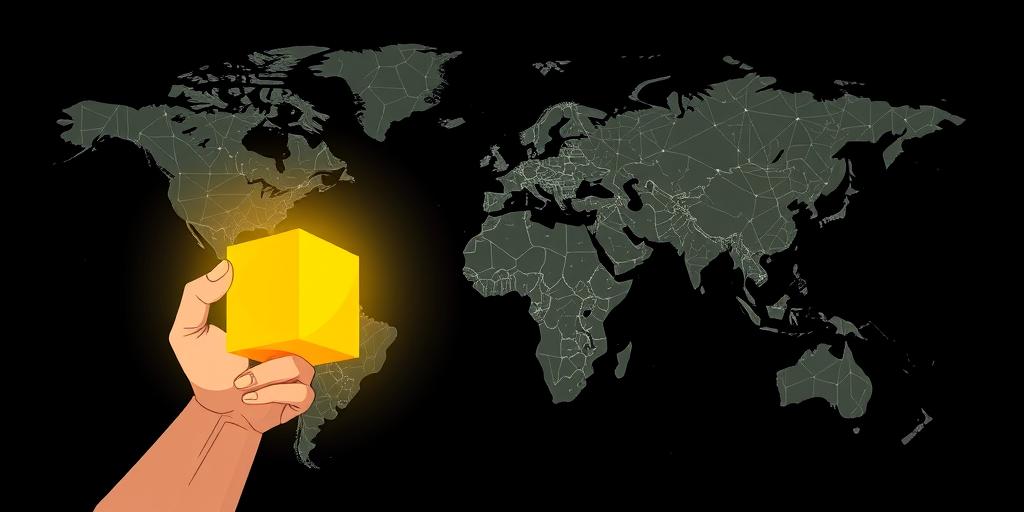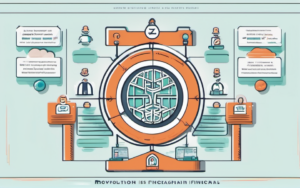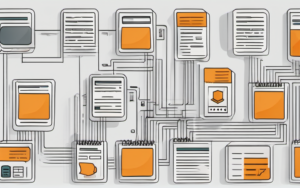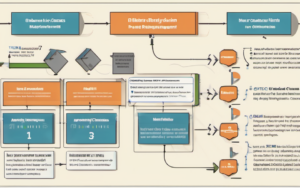The world is grappling with the persistent issue of global inequality, a complex problem with far-reaching consequences. As we search for solutions, blockchain technology emerges as a promising contender, offering a decentralized and transparent framework for tackling economic disparities. While not a silver bullet, blockchain’s potential for promoting financial inclusion, empowering marginalized communities, and fostering greater economic equity is undeniable.
Blockchain Technology: A Potential Solution to Global Inequality?
Introduction
Global inequality continues to be a pressing concern, with vast disparities in wealth, income, and access to resources. This inequity not only perpetuates poverty but also undermines economic growth and social stability. In this context, blockchain technology has emerged as a potential tool for addressing these challenges, offering a decentralized and transparent approach to financial systems and resource management.
Understanding Blockchain Technology
Blockchain technology is a revolutionary innovation that has the potential to transform various industries, including finance, healthcare, and supply chain management. At its core, blockchain is a distributed ledger that records transactions in a secure and transparent manner.
Decentralization and Transparency
Unlike traditional centralized systems, blockchain operates on a decentralized network, with no single entity controlling the data. This eliminates the risk of manipulation or censorship, ensuring transparency and accountability in all transactions.
Immutability and Security
Once a transaction is recorded on a blockchain, it is immutable, meaning it cannot be altered or deleted. This immutability provides a high level of security, preventing fraud and ensuring the integrity of the data.
Smart Contracts and Automation
Blockchain enables the creation of smart contracts, self-executing agreements that automate processes and enforce contractual obligations. This automation eliminates the need for intermediaries, reducing costs and improving efficiency.
Potential Applications of Blockchain for Inequality Reduction
Blockchain technology offers a range of potential applications for addressing global inequality, particularly in areas related to financial inclusion, resource distribution, and economic empowerment.
Financial Inclusion and Access to Credit
Blockchain-based solutions can facilitate financial inclusion by providing access to financial services for underserved populations, such as those living in rural areas or without access to traditional banking systems. Decentralized finance (DeFi) platforms built on blockchain technology can offer micro-loans, savings accounts, and other financial products, empowering individuals to participate in the global economy.
Transparent and Efficient Aid Distribution
Blockchain can enhance transparency and efficiency in humanitarian aid distribution. By tracking the flow of aid from donors to recipients, blockchain systems ensure accountability and prevent misappropriation of funds. This can empower communities and ensure that aid reaches those in need.
Empowering Micro-Entrepreneurs
Blockchain technology can facilitate the growth of micro-enterprises by providing access to financing, secure payment systems, and transparent supply chains. This can empower small businesses to thrive and create jobs in developing economies.
Land Titling and Property Rights
Blockchain can be used to record land ownership and property rights securely and transparently. This can help to prevent land grabbing and ensure that individuals have secure access to their assets, promoting economic stability and social equity.
Challenges and Limitations
While blockchain technology holds immense potential for tackling global inequality, it also faces several challenges that need to be addressed for its widespread adoption and effectiveness.
Scalability and Adoption
One of the biggest challenges is scaling blockchain technology to accommodate the needs of a large and diverse user base. Current blockchain platforms often struggle with transaction speed and processing capacity, limiting their ability to handle high volumes of transactions.
Regulatory Uncertainty
The regulatory landscape surrounding blockchain technology is still evolving, creating uncertainty for businesses and individuals. Clear regulations and guidelines are crucial for fostering innovation and ensuring consumer protection.
Digital Divide and Access
The benefits of blockchain technology can only be fully realized if individuals have access to the necessary infrastructure and digital literacy skills. Addressing the digital divide and ensuring equitable access to technology is essential for realizing blockchain’s potential.
Conclusion: A Promising Tool, But Not a Silver Bullet
Blockchain technology holds immense promise for addressing global inequality, offering a decentralized and transparent framework for financial inclusion, resource management, and economic empowerment. However, it’s crucial to recognize that blockchain is not a magic bullet and needs to be integrated into broader development strategies that address the root causes of inequality.
The success of blockchain in tackling global inequality hinges on overcoming the challenges of scalability, regulatory uncertainty, and the digital divide. Further research, collaboration, and policy initiatives are needed to harness blockchain’s potential for creating a more equitable and just world.




